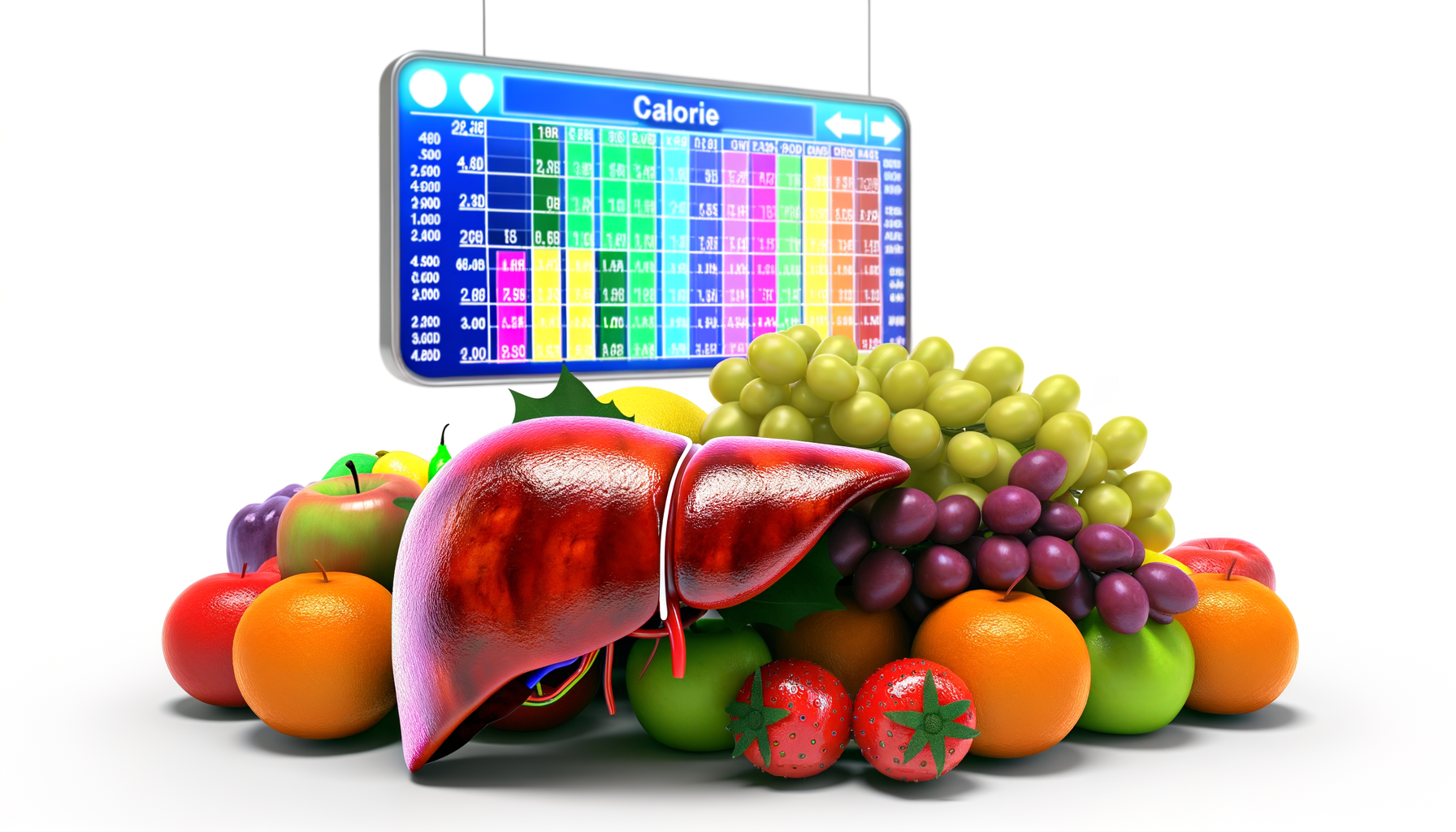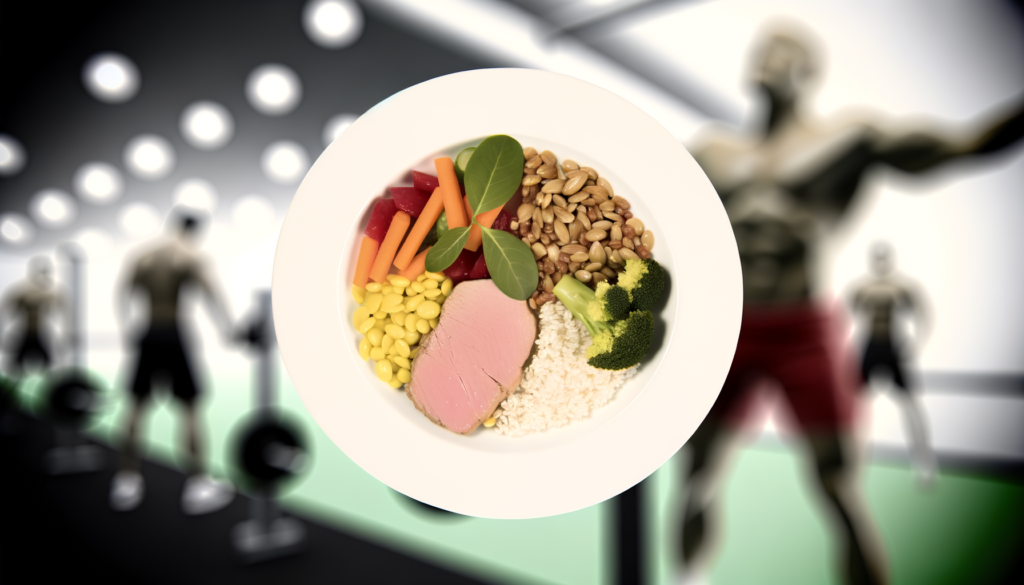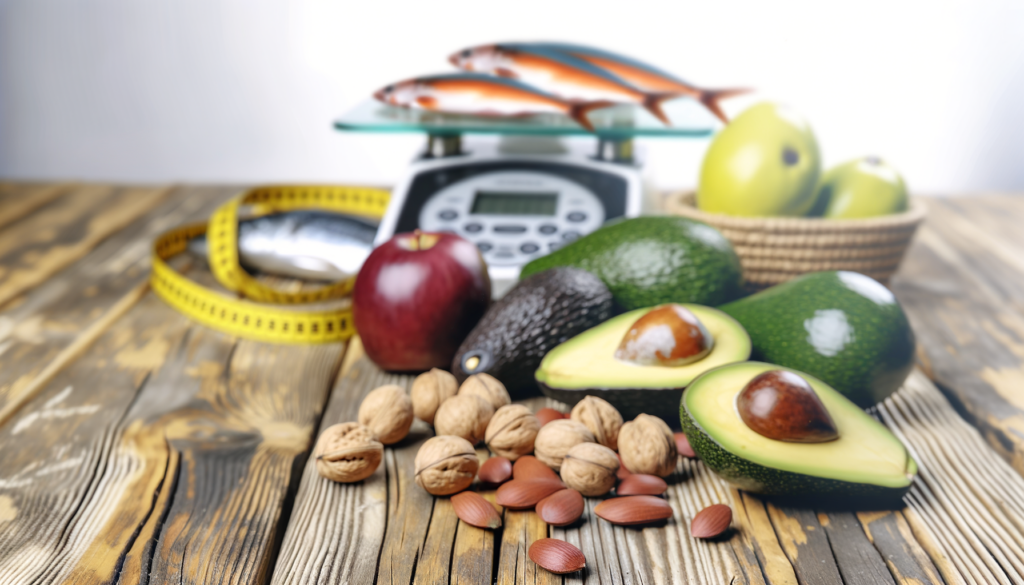The Crucial Link Between Liver Health and Calorie Tracking
When it comes to maintaining overall health and wellness, two often overlooked yet critically important aspects are liver health and calorie tracking. The liver, a vital organ responsible for detoxification, metabolism, and nutrient storage, plays a pivotal role in our body’s functioning. Here, we will explore how integrating liver health metrics with calorie tracking can enhance your metabolic wellness and overall health.
The Role of the Liver in Metabolic Wellness
The liver is often described as the body’s “guardian of detoxification” due to its role in processing toxins and waste products. It converts fat-soluble toxins into water-soluble compounds, conjugates them for easier elimination, and finally excretes them through urine, feces, and sweat. This intricate detoxification process is essential for maintaining optimal health and preventing diseases such as fatty liver disease.
Besides detoxification, the liver aids in digestion by producing bile to help absorb fats and fat-soluble vitamins. It also stores nutrients and regulates the metabolism of fats, proteins, and carbohydrates. Therefore, maintaining liver health is crucial for the healthy functioning of other vital organs like the heart, brain, and kidneys.
Nutrition and Liver Health
Nutrition plays a significant role in liver health. Consuming a diet rich in antioxidants, anti-inflammatory foods, and essential nutrients can protect liver cells and reduce inflammation. Foods such as fruits, vegetables, nuts, and seeds are high in antioxidants that help the liver fight off harmful molecules called free radicals, thereby preventing oxidative stress and liver damage.
Other essential nutrients for liver health include lean proteins, omega-3 fatty acids, B vitamins, choline, and magnesium. Lean proteins, found in legumes, fish, and tofu, assist in liver repair and regeneration. Omega-3 fatty acids, B vitamins, and choline support liver function and fat metabolism. Magnesium, found in leafy greens, nuts, seeds, and whole grains, regulates liver enzyme function and supports detoxification.
Calorie Tracking and Its Impact on Liver Health
Calorie tracking is a vital component of maintaining metabolic wellness. By accurately calculating your Basal Metabolic Rate (BMR) and Total Daily Energy Expenditure (TDEE), you can ensure you are consuming the right amount of calories to support your body’s needs without overburdening your liver. Tools like the Calorie Calculator Cloud use advanced algorithms such as the Mifflin-St Jeor equation to provide personalized calorie recommendations.
Integrating calorie tracking with wearable technology can further enhance this process. Wearable devices like the Garmin Forerunner series track real-time data on steps, heart rate, sleep habits, and other metrics, which can be used to give consumers a deeper understanding of their health and activity levels. This integration can also personalize in-app challenges and recommend workouts based on real-time exertion levels, increasing user engagement and motivation.
Case Studies: Mobile Apps and Liver Health
Several mobile apps have been developed to manage chronic liver disease and promote overall liver health. For instance, the Noom Weight (NW) mobile app has been studied for its effectiveness in weight loss and feasibility among patients with liver disease. The app includes self-monitoring and feedback features for food, exercise, and body weight, along with access to a behavior change coach and a support group. The study showed significant body weight loss in participants using the NW app compared to standard clinical care.
Another example is the EL-FIT (Exercise and Liver FITness) app, designed for patients with cirrhosis. This app includes a stratification algorithm for exercise prescriptions, educational and exercise videos, and gamification features. The study found that patients with cirrhosis were able to use and interact with the EL-FIT app effectively, with a high percentage completing video sections and achieving milestones.
Practical Steps to Integrate Liver Health Metrics with Calorie Tracking
To integrate liver health metrics with calorie tracking effectively, follow these practical steps:
- Maintain a balanced diet rich in whole foods, antioxidants, and essential nutrients. Avoid or minimize processed foods, alcohol, and excessive saturated fats.
- Use a calorie tracking tool like the Calorie Calculator Cloud to get personalized calorie recommendations based on your BMR and TDEE.
- Integrate your calorie tracking with wearable technology to get real-time data on your activity levels, heart rate, and sleep habits.
- Stay hydrated by drinking an adequate amount of water daily to support liver function and assist in flushing out toxins.
- Engage in regular physical activity to improve blood circulation and aid liver function.
- Minimize exposure to environmental toxins and consider liver-supporting supplements like milk thistle, dandelion root, and turmeric after consulting with a healthcare professional.
Conclusion and Next Steps
In conclusion, integrating liver health metrics with calorie tracking is a holistic approach to maintaining metabolic wellness. By understanding the crucial role of the liver in detoxification and metabolism, and using tools like the Calorie Calculator Plans and wearable technology, you can make informed choices to support your liver health and overall well-being.
If you are serious about enhancing your health and fitness regimen, consider integrating these strategies into your daily routine. Start by assessing your current diet and activity levels, and then use the resources available to you to make positive changes. Remember, a healthy liver is key to a healthier, happier you.
For more detailed insights and personalized recommendations, visit the Calorie Calculator Cloud and explore how you can optimize your health and fitness journey.








